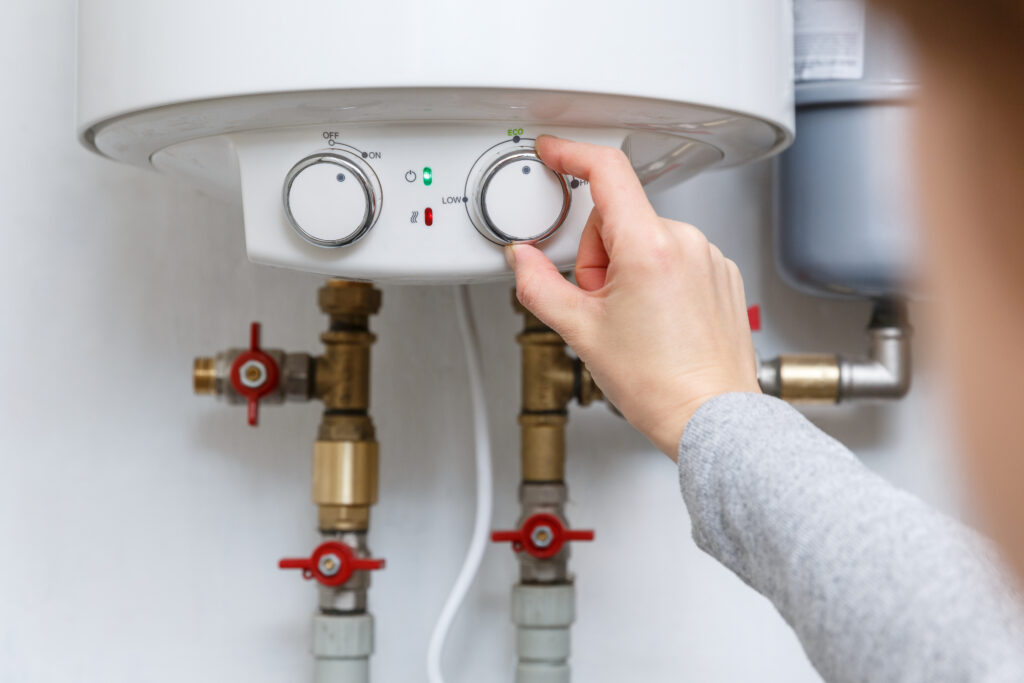By Kara Masterson
Choosing the right water heater is crucial for homeowners, energy savers and DIY enthusiasts. The right choice can ensure comfort, save on energy bills and extend the lifespan of your appliance. This guide covers essential factors to consider and the different types of water heaters available to help you make an informed decision.
Factors to Consider When Choosing a Water Heater
When it comes to choosing a water heater, it's important to keep a few key factors in mind. First and foremost, you'll want to consider the size of the unit. You'll want to choose a water heater with a capacity that matches the hot water needs of your household. A higher capacity might be necessary for larger families, whereas smaller units might be more appropriate for singles or couples. Another important consideration is the fuel source. Water heaters can be powered by electricity, natural gas, propane or even solar energy. The choice of fuel source affects the operational cost and the installation process. Finally, there's energy efficiency to think about. By choosing an energy-efficient model, you can save a significant amount on your utility bills. Look for water heaters with high EF (Energy Factor) ratings and Energy Star certifications. If you're not sure which water heater is right for your home, be sure to consult with a trusted plumbing professional.
Types of Water Heaters Available:
- Traditional Tank Water Heaters
Traditional tank models are a popular choice among homeowners. These units offer a number of advantages, such as easy installation and affordable upfront costs. They're also widely available at many plumbing supply stores. However, it's important to consider the downsides as well. Tank water heaters occupy a fair amount of space, and their supply of hot water is limited by the size of the tank. Plus, because the water is stored in the tank, it can be less energy-efficient due to heat loss over time. All things considered, it's important to weigh the pros and cons of traditional tank water heaters before making a final decision. - Tankless Water Heaters
Tankless water heaters are a newer option on the market and have grown in popularity due to their energy efficiency and space-saving design. Unlike traditional tank models, these units heat water on demand as it passes through the unit, eliminating the need for a storage tank. This means they can provide hot water continuously without running out. Plus, since there's no tank involved, there'**s less risk of water damage from leaks. However, the upfront cost for tankless water heaters can be higher than traditional tank models and they may require additional retrofitting for installation. - Heat Pump Water Heaters
Heat pump water heaters, also known as hybrid water heaters, use electricity to move heat from the air or ground to heat your water. They are highly energy-efficient and can save up to 50% on energy costs compared to traditional tank models. However, they tend to have higher upfront costs and may require more maintenance due to their complex design. - Solar Water Heaters
Solar water heaters utilize the sun's energy to heat water. They are environmentally friendly and can significantly reduce your energy bills. However, they also have higher upfront costs and may not be suitable for every climate or home location. Additionally, they may require a backup heating source for days with little sunlight.
Determining Your Hot Water Usage and Needs
You'll also need to consider your household's hot water usage to choose the right water heater. For example, do you have a large family that uses a lot of hot water? Or are you a single person with minimal hot water needs? This will help determine the appropriate size and capacity for your water heater. Additionally, think about your daily routine and when hot water is used most frequently. This can help in choosing a water heater with the right features and settings to fit your lifestyle.
Tips for Maintaining Your Water Heater
Taking good care of your water heater can save you money in the long run. A few simple tasks can keep your heater operating efficiently and prevent costly repairs or dangerous explosions. First, inspect your water heater regularly for any leaks, corrosion or sediment buildup that may be present. Catching these problems early can help you address them before they become bigger issues. Additionally, for traditional tank heaters, flushing the tank annually to remove sediment can significantly improve efficiency. Insulating the tank and pipes will further help minimize heat loss, contributing to energy savings. Taking care of your water heater is essential and can be done quickly with the help of a local plumbing professional, someone like Universal Heating and Plumbing.
Choosing the right water heater is crucial for homeowners and can greatly impact comfort, energy bills and appliance lifespan. By considering factors such as size, fuel source and energy efficiency, you can make an informed decision that meets your household's hot water needs. There is a water heater solution for every home with options ranging from traditional tank models to solar-powered units. Remember to regularly maintain your water heater to ensure optimal performance and consult with a plumbing professional for any questions or concerns. With the right water heater, you can enjoy reliable hot water and energy savings for years to come.
Kara Masterson is a freelance writer from Utah. She enjoys playing tennis and spending time with her family.








